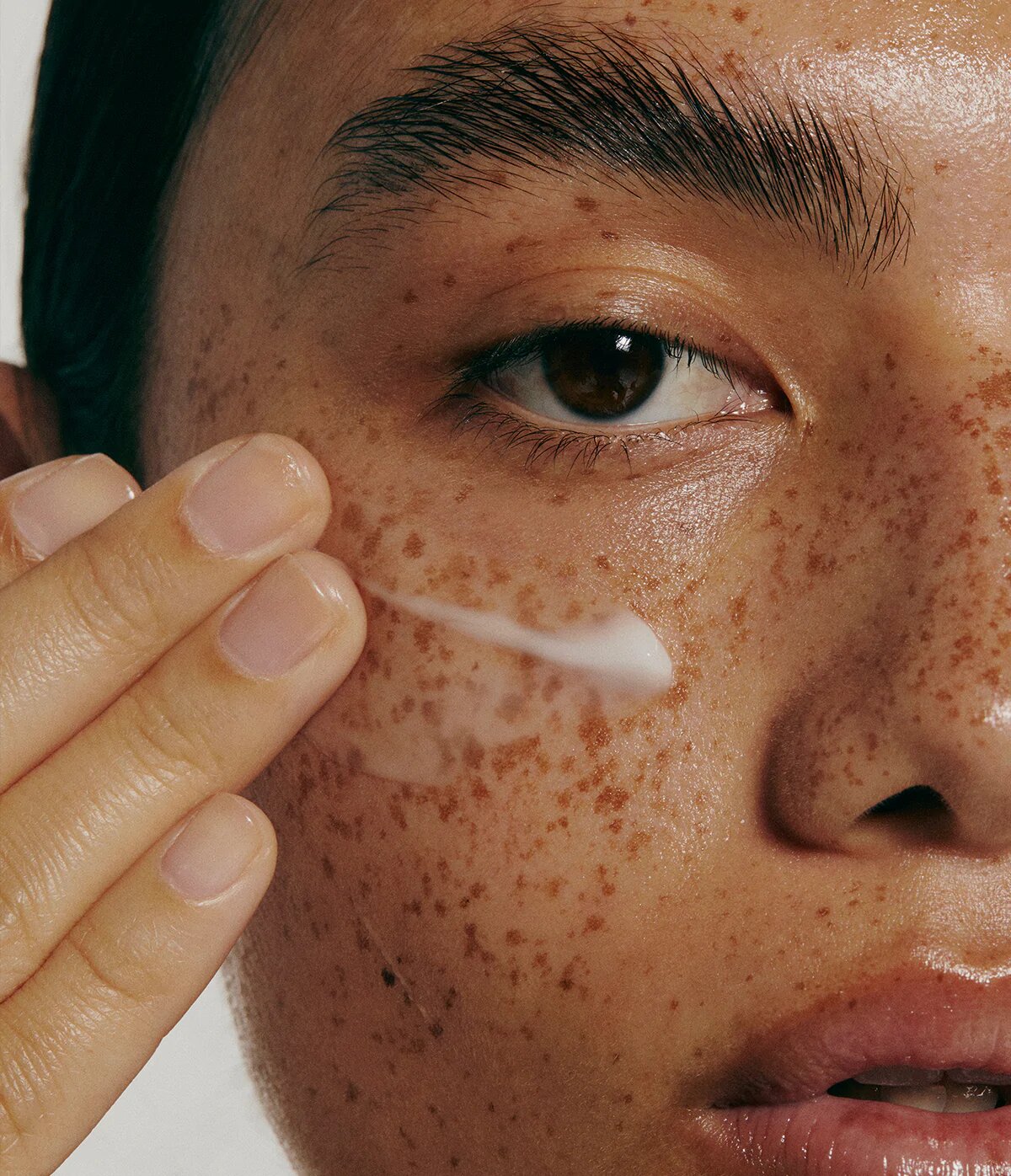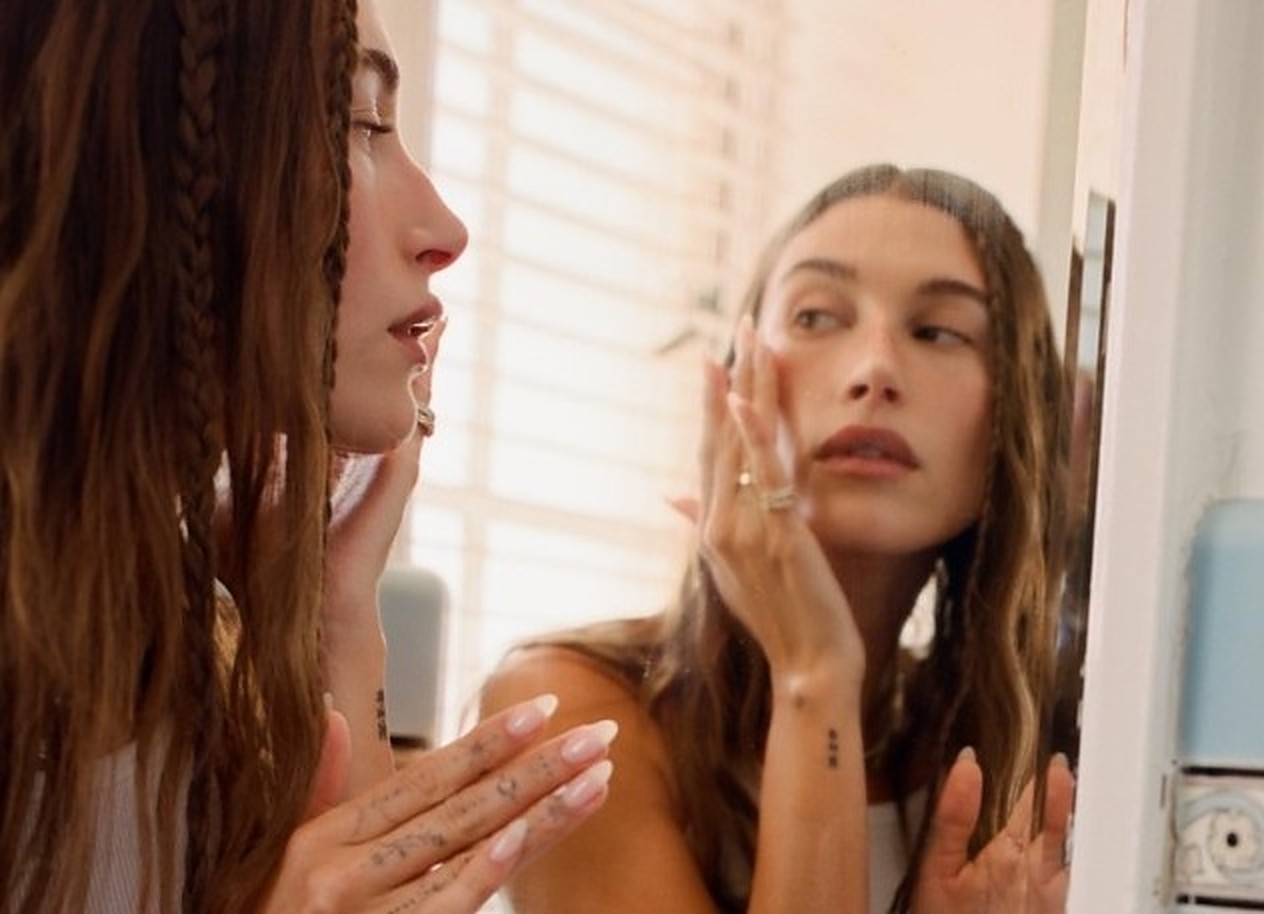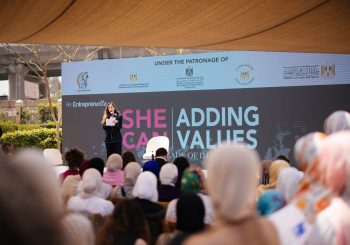Aesthetic labor for women has always been hidden behind the closed doors of bathrooms or a mother’s dressing table. Stepping inside a beauty salon is like entering a private space or a secret factory concealed from the masses, where women are wholly committed to beautification and self-transformation.
But as beauty critic Jessica DeFino once asked, if beautification requires so much work, then who’s the boss?
The cosmetics and beauty industry has traditionally been perceived as feminine, but most of the leaders in this industry are actually men. The beauty industry worldwide has an average of just 29 percent female leadership across boards and executive teams, according to a 2016 report by LedBetter Gender Equality Index.
Yet aesthetic labor, which refers to the unrecognized work women do to achieve the ‘right look’ for society or their employers, is no longer hidden; it is quite literally what they consume every day through their mobile screens. Beauty routines are no longer passed down to them through their mothers or grandmothers, but through female beauty influencers on YouTube, Instagram, or TikTok.
In a world where YouTube and TikTok ‘makeup how to’ and ‘what to buy’ videos receive millions of views; aesthetic entrepreneurship is a new concept that celebrates the entrepreneurial woman in taking control of her career and appearance. It refutes the claim that women in the beauty world are passive, but instead, have agency and creativity in the way they style and transform themselves.
Aesthetic entrepreneurship – who rules?

In spite of the success of female entrepreneurs, there’s a thin line between empowerment, exploitation, and misogyny.
While the concept embraces women’s agency to control and manage their appearance, it should also be layered with concerns regarding obsessive image consumption and profiting off women’s insecurities, which reinforces misogynist views of women’s success as dependent on their appearance.
Popular global female celebrities like Kim Kardashian – who recently launched her own skincare line – curate their personal beauty salon through social media by selling their aesthetic to their followers in order to attain entrepreneurial success. In the Middle East, famous influencers like Huda Kattan and Hadia Ghaleb, are also involved in developing their own aesthetic to sell products, review products, or become brand ambassadors.
Yet not all successful women entrepreneurs have full ownership over their brands. Kim Kardashian’s main investors include Thrive Capital, a venture firm founded by Joshua Kushner, who is a well-known American billionaire businessman. So even though these products are marketed for ordinary women, most of the rewards are reaped by powerful male investors that exploit the aesthetic labor of women for profit.
On the other hand, for ordinary women, who do not enjoy the privilege of celebrity status, social media does not just represent a personal beauty salon, but it has also become an underground place for protest against heavily advertised products and unattainable beauty standards.
Through their platforms, female bloggers and entrepreneurs document their struggles with confidence and beauty standards, experiences with surgery or products, and share their own honest critiques to develop beauty routines that best suit their lifestyle, facial features, and most importantly, their own financial situations.
The question is: to what extent can women’s self-beautification be seen as a way for them to express their unique beauty, rather than an attempt to encourage overconsumption to alter their image?
Real content, real faces
View this post on Instagram
In Egypt, aesthetic entrepreneurship is helping young women like Jumana Abdallah, 25, to redefine their own beauty standards, shifting from blind consumption of products from advertisements to honest critiques, reviews, and experiences with her own self-confidence.
When Abdallah was young, her friends had described her bedroom as their pharmacy, due to the vast number of skin care products that were on her dressing table. Many years later, she opened this private bedroom to a large public following.
Abdallah has reached over 1.5 million views on Tiktok alone and has garnered over 50k followers on Instagram in just three years. Yet when she first started, there was no business or marketing strategy to help her blow up; it grew rapidly and organically due to demand.
“It started off as a small blog, where I could share my own personal experience with certain products for my own group of friends,” Abdallah tells Egyptian Streets.
“I used to always see images of people with great hair and skin, but I know that these images did not represent the majority of people. Most people struggle with acne and skin problems, and so I wanted to create a more realistic platform where I share my own beauty journey.”
Growing up with acne-prone skin, Abdallah notes that the mindset of going to a dermatologist was not yet well-known or popular at the time.
“Home-made remedies and DIY tutorials were the only information I had on beauty and skincare, but it never cured my problems. I started my own research and began following international dermatologists online, and started to know the science behind each product I purchase.”
Dermatologists are currently gaining popularity among young girls, as Dr. Manal Sayed Mohamed, a dermatology and beauty consultant at Dr. Manal’s Clinic in Cairo, notes that she witnessed an increase in the number of young girls visiting her clinic. Many of them have expressed interest in cosmetic injectables like botox and fillers, yet she often advises them to prioritize taking care of their skin.
View this post on Instagram
“There are a number of reports and complaints submitted to the Ministry of Health and the Doctor’s Syndicate due to the vast number of failed and non-medical cosmetic surgeries because it was not suited for their face or skin type,” she says.
“The whole concept of changing one’s facial features or copying someone else is entirely flawed and non-medical, and it has become a dark business. If not done professionally, these surgeries often fail and force many young women to constantly perform surgeries to go back to in order to revert to their original features.”
It is not about creating perfection, but it is about being consistent when it comes to a skincare routine to see real results. Mohamed recommends choosing a skincare routine that is specific for multiple concerns, which means that this will require multiple formulas: a cleanser, a toner, a serum, a moisturizer, and a sunscreen.
Using her own research and knowledge, Abdallah developed her own beauty regimen to suit her face and skin.
Before reviewing a product, Abdallah tries the product for at least a month to see results. Rather than purchasing heavily advertised products and aspiring to achieve a certain beauty standard through cosmetic surgery, Abdallah has created a world where she can take ownership of her own appearance. But how far is this translated to her followers?
“My followers are more like my friends, and I sometimes even help them with personal problems that affect their confidence,” Abdallah notes.
“Instagram and social media in general can be a very toxic place for young girls. Sometimes I go on my platform and post videos where I bluntly say, ‘I am breaking out today’ or ‘I don’t feel confident with the way I look’ because I know this helps them to share their own struggles with me through personal messages.”
“As a beauty community, we are trying to be more blunt,” she adds. “A lot of young girls are growing up to see perfect images all around them, which has led them to resort to cosmetic surgery to change their features, but there is also a reverse trend where people like me are trying to make content that looks more real.”
More transparency?
Earlier in March this year, American-Palestinian model Bella Hadid shared in a Vogue interview that she wish she could have “kept the nose of my ancestors”, which sparked a conversation on social media around the harms of cosmetic surgery and Eurocentric beauty standards.
But most people also brushed over the fact that Hadid said she had “insecurities, anxiety, depression, body-image issues, and eating issues”, which is the root cause for her obsession to attain a standard of beauty that she feels robbed of, or that she lacks.
The feeling of “lacking” a certain facial feature is the one that drives unnecessary cosmetic surgeries that are not only not required, but can also cause other facial damages, such as paralyzing certain facial muscles or creating distortions in the face, Dr. Manal says.
Yet there is also another side of cosmetic surgery that is medical and is based on professional medical advice. Rather than hiding it due to fear of judgment and shaming of being seen as “fake”, aesthetic entrepreneurs on social media have also used their platforms for more public and transparent experiences.
Haya Yassin, 21, who is an Egyptian model and brand ambassador with over 100,000 followers on Instagram, does not shy away from the fact that she had fillers, and uses her platform to share her personal experiences with beauty.
“I try to be as open and helpful as I can when it comes to my own experiences. We shouldn’t constantly shame or judge other women for their choices, because if this builds her self-confidence, then why are we against it?” Yassin says.
“As long as our own facial features will not radically change, and we are not giving the dermatologist a reference image of another person, then it’s freedom of choice.”
Before getting fillers at the age of 20, Yassin told her medical professional that she does not want to alter her own face.
“I told him that I wanted to tweak something in particular, but I did not want to change my facial features. There is definitely a lot of pressure on young women today when it comes to beauty standards, but this also does not mean that we should make them feel less confident, but rather have honest conversations about it.”
Dr. Hany Abdel Aziz, a notable plastic surgeon consultant, notes that the safe and professional use of botox and fillers by specialized medical doctors can provide useful and legitimate approaches to reducing the effects of wrinkles. Yet he adds that women need to be more specific about what exactly they need and why they need it, as a true medical professional would not carry out the surgery if it is simply to imitate the face of a celebrity.
“Social media has, without a doubt, attracted more women and girls to plastic surgery. But surgeries can only be carried out according to need. When these surgeries are performed scientifically and follow safe surgical rules, they can have a positive impact and noticeable psychological satisfaction,” he says.
In her own circle of friends, Yassin knows many women her age who have had nose jobs and other cosmetic surgeries, but she says that ironically, it created a reverse effect as they are now trying to get back to their own facial features.
“There are some people that do actually need treatments, and there are some serious cases that require treatments by surgery, but if there is no need, then it will not be natural,” she argues.
“I always tell my followers that copying other people’s appearance actually brings more harm and that we need to love our own facial features. Because when you try to change them, you will realize that you did not become more beautiful, you just changed the way you look,” she adds.
While navigating the complex web of the large beauty and skin industry, it is important to ponder over who reaps the rewards of our aesthetic labor before making any decisions, and whether these decisions stem from a feeling of lacking a certain beauty ideal. In the end, do we actually care about the health of our skin, or are we simply chasing an unattainable beauty standard?







Comment (1)
[…] her initial goal of encouraging women to love how they look is being realized in their bold attitudes, according to her […]